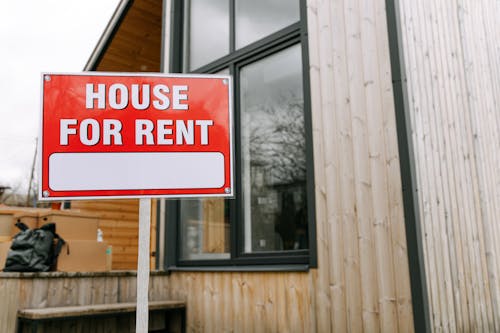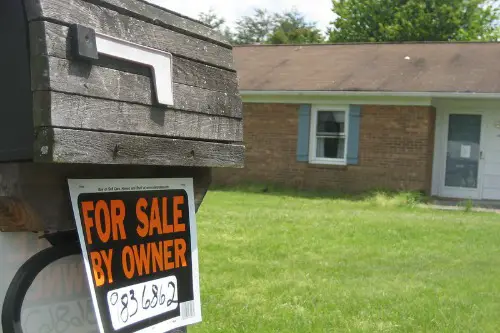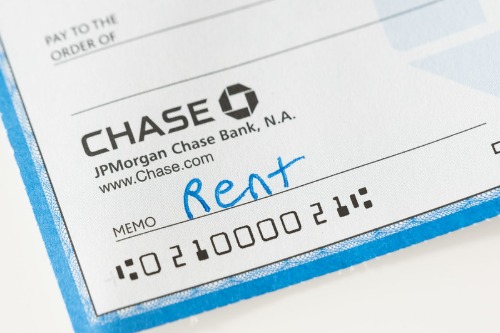1. Phantom Rentals

Phantom rental scams happen when a scammer lists a property that doesn’t actually exist or isn’t available. They often create fake listings on popular platforms, using photos stolen from legitimate sites. Unsuspecting renters send deposits or first month’s rent, thinking they’ve locked in a great deal. By the time they realize the property is fake, the money is long gone.
These scams are still common because people often rush to secure housing, especially in competitive markets. Scammers prey on urgency and limited availability. They may even “show” the property virtually to make it feel real. Always verify ownership through public records or meet landlords in person before paying anything.
2. Wire Transfer Frauds

Wire transfer frauds involve scammers tricking buyers into sending money directly to a fake account. This often happens during home purchases when criminals impersonate real estate agents or title companies. They use emails that look legitimate, with subtle differences that many don’t notice. Once the money is sent, it’s nearly impossible to recover.
These scams persist because buyers assume emails from agents or lenders are safe. Scammers exploit trust and lack of attention to detail. People are often in a hurry to close deals, making them more vulnerable. Confirm wire instructions with a phone call to a known number before transferring funds.
3. Foreclosure Relief Scams

Foreclosure relief scams target homeowners struggling to pay their mortgage. Scammers promise to save the home through “special programs” or “loan modifications.” Victims are asked to pay upfront fees or sign over property deeds. Often, nothing is done, and homeowners lose both their money and their homes.
This scam is still prevalent because many Americans are unaware of legitimate government or lender programs. Desperation can cloud judgment, making people more likely to believe false promises. Scammers often sound professional and sympathetic. Always confirm programs directly with your lender or trusted nonprofit housing agencies.
4. Title Fraud

Title fraud happens when someone illegally transfers the ownership of a property without the owner’s knowledge. The criminal may use forged documents to take out loans or sell the property. Victims usually only find out when they’re contacted about debts or sale proceedings. This can create long legal battles and serious financial losses.
It remains a risk because title monitoring isn’t something homeowners often think about. Scammers can exploit gaps in public records or weak verification processes. Many people assume their property is automatically protected. Regularly checking your property records and securing title insurance can help prevent this nightmare.
5. Bait-and-Switch Agents

Bait-and-switch agents lure buyers with promises of great deals or rare properties that don’t exist. Once the buyer is hooked, the agent pressures them into purchasing a less desirable property. The initial offer might disappear mysteriously, creating stress and confusion. This tactic preys on buyer enthusiasm and trust.
These scams stick around because buyers often rely heavily on agents to guide them. Unscrupulous agents exploit the assumption that all professionals are trustworthy. They can be charming and persuasive, making it harder to detect their intent. Always verify listings independently and read contracts carefully before committing.
6. Overpriced Appraisals

Overpriced appraisal scams involve inflated property valuations to justify high loans or commissions. Sometimes appraisers collude with lenders or agents to make a property appear more valuable than it is. Buyers end up paying more than the home is worth, which can be disastrous if the market drops. Banks or lenders may be misled too, but buyers bear the immediate financial hit.
This scam thrives because appraisals are often seen as objective and unquestionable. Homebuyers rarely challenge appraisal numbers, assuming experts are accurate. Scammers exploit this trust to maximize profits. Getting a second appraisal can protect buyers from being taken advantage of.
7. Equity Skimming

Equity skimming targets homeowners with equity in their property, often retirees or people in financial distress. The scammer convinces the owner to let them “manage” the property, promising rent payments or mortgage relief. In reality, the scammer collects rents and leaves the homeowner responsible for unpaid bills or foreclosure. The victim loses both money and equity.
It’s still happening because homeowners may not fully understand complex agreements. Scammers present themselves as helpful investors or managers. The offer often sounds too good to pass up, preying on trust and desperation. Always involve a real estate attorney before signing any management or investment agreements.
8. Rental Deposit Scams

Rental deposit scams occur when someone claims a property is available for rent and asks for a deposit before a lease is signed. The property might exist, but the scammer has no legal right to rent it. Tenants send money, then find out the property is already occupied or never intended to be rented. These scams hit especially hard in high-demand rental markets.
People fall for this because rental demand often outpaces supply. Scammers exploit the fear of missing out. Verification of ownership or legitimate property management is key. Never wire money without confirming the landlord’s identity and the property’s availability.
9. Fake Real Estate Investment Opportunities

Fake investment schemes promise high returns from flipping houses, rental properties, or real estate funds. Investors are convinced to contribute funds that vanish into scammer accounts. There’s usually some documentation or website to make it look credible. When the deal collapses, investors are left empty-handed.
These scams persist because real estate is widely seen as a safe investment. Many people are lured by the promise of quick, high profits. Scammers prey on both novice investors and those seeking tax shelters. Always vet opportunities through independent financial advisors and verify company registrations.
10. Property “Hijacking” Scams

Property hijacking involves someone posing as the rightful owner to sell or rent out a property they don’t own. Buyers or renters pay money, believing the deal is legitimate. Eventually, they discover the property is actually owned by someone else. The consequences can include financial loss and legal headaches.
This scam survives because verifying property ownership isn’t always straightforward. Scammers manipulate public records or present convincing fake documents. High-demand markets make buyers more willing to act quickly. Always check ownership with the county recorder’s office or other official records.
11. “Low-Down-Payment” Schemes

These scams target buyers with promises of low down payments on homes that supposedly have special financing. The scammer collects the down payment but either disappears or sells a different property. Buyers are left with lost money and no home. The scheme often appears legitimate with fake contracts and paperwork.
It’s still common because many buyers are eager to get into the market without full savings. Scammers exploit excitement and financial limitations. Often, they present themselves as brokers or lenders to gain trust. Verifying the legitimacy of the loan or program with a bank or licensed professional can prevent disaster.
12. Home Inspection Scams

Home inspection scams occur when inspectors overstate problems or fabricate issues to extract fees or push repairs. Buyers are pressured to pay for unnecessary services or fix “problems” that don’t exist. Sometimes the scam involves collusion with contractors who profit from unnecessary work. Victims may pay thousands before discovering the truth.
These scams linger because most buyers don’t know enough to spot false claims. Inspectors can sound credible and technical, making it hard to question them. Trust combined with a lack of knowledge creates the perfect environment for fraud. Always seek multiple opinions and verify credentials before committing to repairs or payments.
This post 12 Real Estate Scams Americans Are Still Falling For was first published on American Charm.


